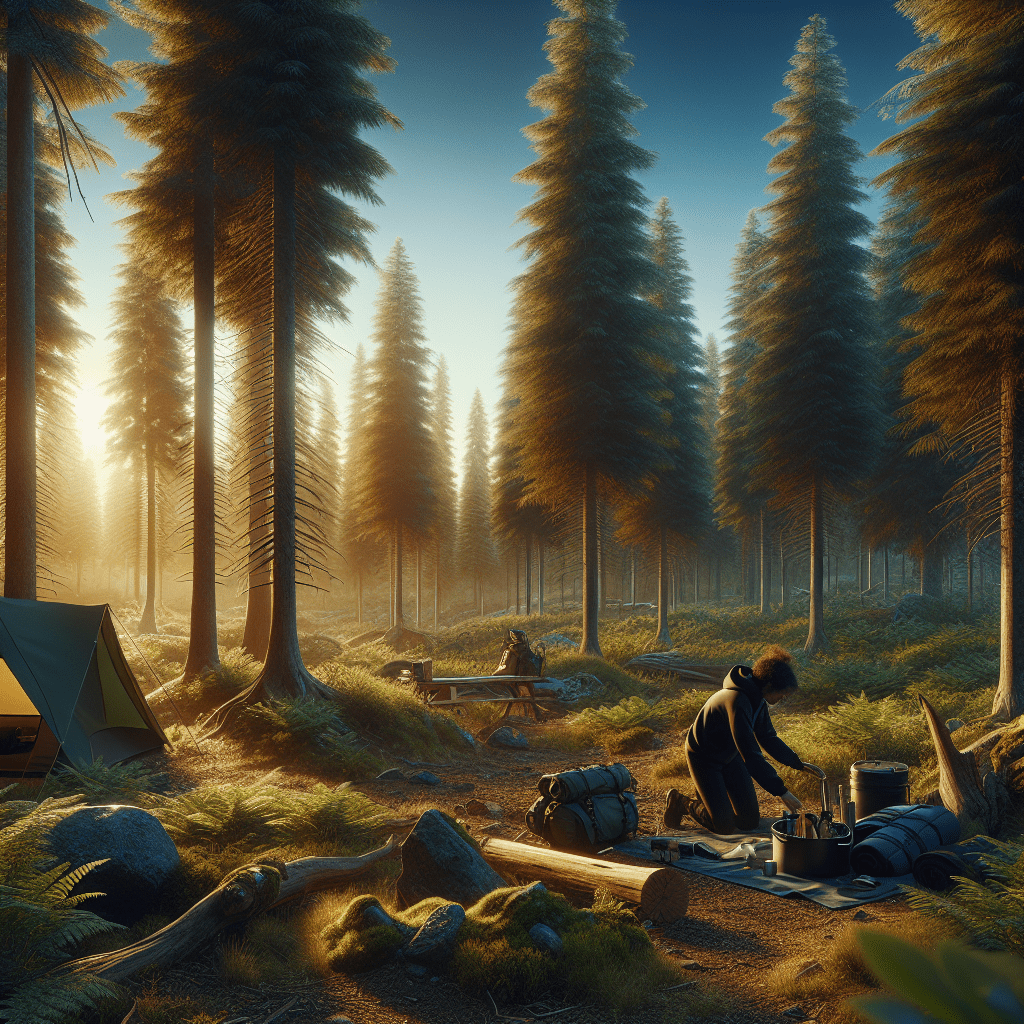Choosing the Perfect Campsite: A Beginner’s Guide
Are you excited about your first camping trip but not sure where to start? Choosing the perfect campsite can make or break your adventure. In this article, we’ll dive into some essential tips for beginners to ensure you have an amazing outdoor experience.
Understanding Campsite Basics
A campsite is a designated area where you set up camp. But not all campsites are created equal. You’ve got developed campsites with amenities like bathrooms and picnic tables, and then you have primitive sites, which are just nature, plain and simple. And let’s not forget backcountry sites for the more adventurous.
Developed vs. Primitive Campsites
Developed campsites come with perks like restrooms, running water, and sometimes even electricity. Perfect for families or those who like a few comforts from home. Primitive campsites, on the other hand, are more rugged. You bring everything you need and leave no trace behind.
Factors to Consider When Choosing the Perfect Campsite
Now, how do you choose the perfect campsite? Let’s break it down.
Location, Location, Location
Where you pitch your tent matters. Here’s what to look for:
- Proximity to water: Being close to a water source like a stream or lake is super convenient. Just remember, set up camp at least 200 feet away to avoid contamination.
- Accessibility to trails: If you plan on hiking, choose a site close to trailheads. It makes those early morning starts so much easier.
Safety First
No one wants to end up in a dangerous spot. Here are some safety tips:
- Avoid hazards: Steer clear of low-lying areas that might flood. Look out for dead trees or branches that could fall.
- Wildlife: Check for signs of animal activity. Camping too close to wildlife can be risky.
Comfort Counts
A comfortable campsite can make your trip so much better.
- Flat ground: Look for flat, dry ground. Sleeping on a slope or a rock-strewn site isn’t fun.
- Shade and wind protection: Trees can offer great shade and act as a windbreak, making your stay more pleasant.
Research and Planning for Choosing the Perfect Campsite
Planning is key to a successful camping trip. Here’s how to do it right.
- Using online resources: The internet is your friend. Sites like REI and the National Park Service offer tons of info on campsites.
- Websites: Check out reviews and ratings on sites like Campendium or The Dyrt.
- Apps: Use apps for booking and more detailed campsite info.
Tips for Setting Up Your Campsite
Setting up camp isn’t rocket science, but a few tips can help.
- Tent placement: Where you pitch your tent matters.
- Fire safety: Nothing beats a campfire, but safety first.
- Food storage: Keep your food safe from critters.
Campsite Etiquette
Respect the land and your fellow campers.
- Leave no trace principles: Pack out all your trash. Leave the site better than you found it.
- Proper disposal: Follow the rules for disposing of waste and trash.
Common Mistakes to Avoid When Choosing the Perfect Campsite
Avoid these rookie mistakes for a smoother trip.
- Overpacking or underpacking: Pack smart. Bring what you need, but don’t overdo it.
- Ignoring weather forecasts: Always check the weather. Be prepared for changes.
- Not checking regulations: Know the rules for where you’re camping. It can save you a lot of trouble.
Recommended Gear for Campsite Comfort
The right gear can make your camping trip more enjoyable.
- Sleeping essentials: A good sleeping bag and pad are crucial for a comfortable night.
- Cooking tools: A portable stove, pots, and utensils can make meal prep easier.
- Lighting: Headlamps and lanterns are essential for navigating in the dark.
Conclusion
Choosing the perfect campsite isn’t hard, but it takes some planning. By considering location, safety, and comfort, you can ensure a great camping experience. Remember, a little preparation goes a long way. So, get out there and start exploring!
FAQs
Q: How do I know if a campsite is safe?
A: Look for signs of hazards like dead trees, check for wildlife activity, and avoid low-lying areas that could flood.
Q: What should I do if there are no designated fire rings?
A: If fire rings aren’t available, consider using a portable camp stove to minimize impact and ensure safety.
Q: How early should I book a campsite in popular locations?
A: For places like national parks, it’s best to book several months in advance, especially during peak seasons.
Support us! Wilderness gear Pro may earn a small commission from affiliate links in this article. Learn More

